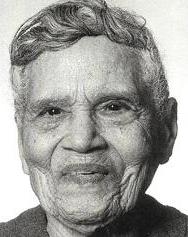A Quote by Suze Orman
If you are worried about job security and do not have an adequate emergency fund (ideally eight months' worth of living expenses stashed away in a federally insured bank or credit union), you need to focus more on saving money than paying down the balance on your credit cards.
Related Quotes
If you do not have at least an eight-month emergency fund, and you think there's a probability you could loose your job - and it's not just losing your job; you could be in a car accident, get sick - continue to pay the minimum on your credit card every month. Everything beyond that needs to go to establish an emergency fund. And if you have an emergency fund saved, then fund your retirement account before paying down credit card debt.
If you want to spend more money in restaurants, use credit cards more than cash. If you want to spend less, use cash more than credit cards. But in general, we can think about how to use the pain of paying and how much of it do we want. And I think we have like a range. Credit cards have very little pain of paying, debit cards have a little bit more because you feel like today, at least it is coming out of your checking account, and cash has much more.
There are two things that you need to save for. First, you need an emergency cushion of no fewer than six months of living expenses. This needs to be cash in a liquid account where you can get at it in - yes - an emergency if you need it. In other words, money markets, not CDs. You also need to save for your future: that means retirement.
We can think about how we reduce the pain in paying. So, for example, credit cards are wonderful mechanisms to reduce the pain of paying. If you go to a restaurant and you are paying cash, you would feel much worse than if you were paying with credit card. Why? You know the price, there's no surprise, but if you're paying cash, you feel a bit more guilt.
[People] have seen the credit market seize up. They're worried about money market funds, although the latest proposition from government should take care of that. They've seen eight percent of the bank deposits in the United States get moved very skillfully, I might say, within the last couple of weeks from institutions that they thought were fine a few months ago to other institutions. They are not wrong to be worried.
I have no credit cards. That was the decision that was made jointly by the credit card companies, and by me. I can't say that that was completely on my account. I buy nothing on credit now, nothing. If I can't afford it, I don't buy it. I have a debit card, that's all I have. Any debt that I have, I am paying down.
The world is a puzzling place today. All these banks sending us credit cards, with our names on them. Well, we didn't order any credit cards! We don't spend what we don't have. So we just cut them in half and throw them out, just as soon as we open them in the mail. Imagine a bank sending credit cards to two ladies over a hundred years old! What are those folks thinking?
If you have credit card debt and credit card companies continue to close down the cards, what are you going to do? What are you going to do if they raise your interest rates to 32 percent? That's five times higher than what your kid is going to pay in interest on a student loan. Get rid of your credit card debt.



























